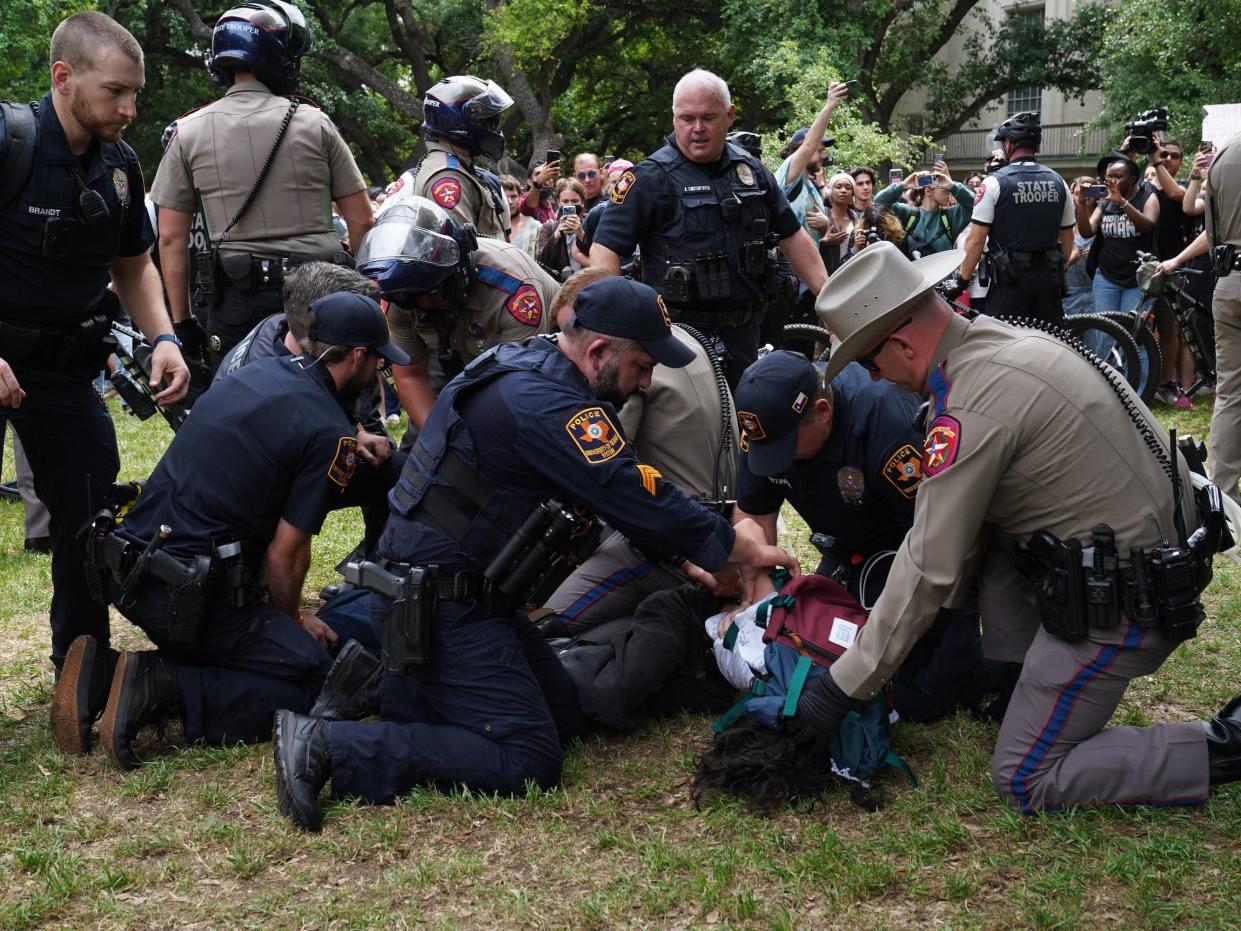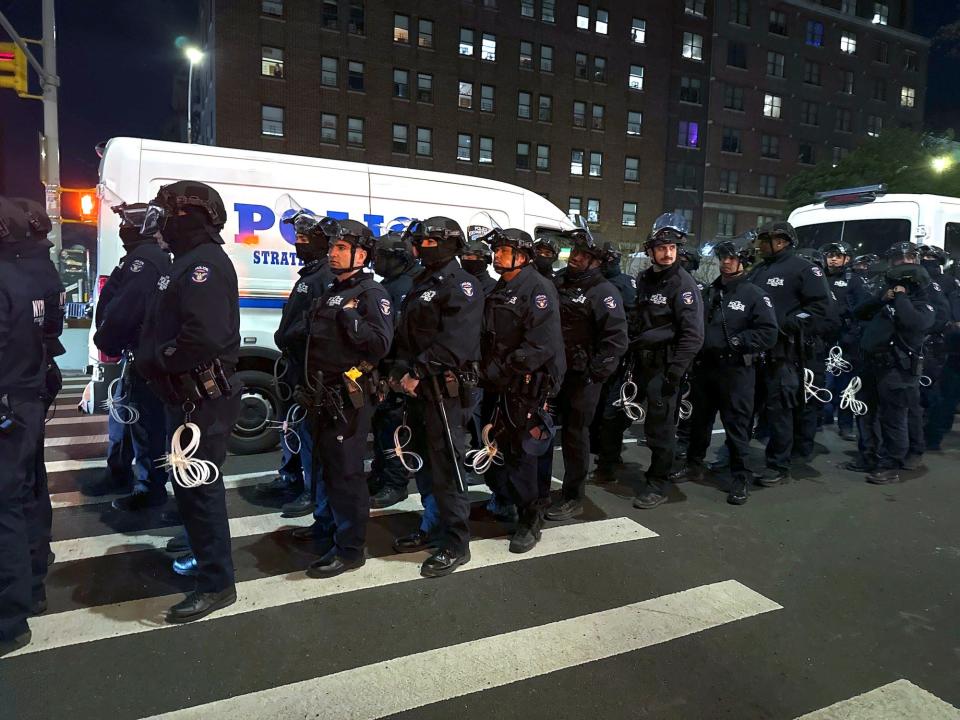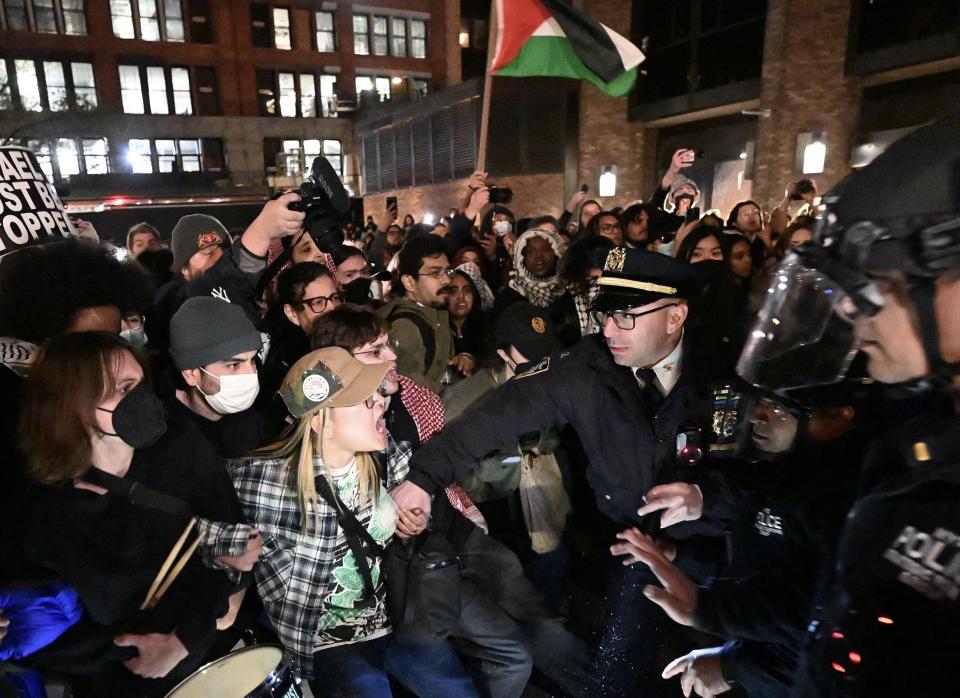Universities are making it worse with their 'overreaction' to pro-Palestinian protests, expert on American dissent says

Pro-Palestinian protests on American campuses are escalating.
Some universities have resorted to militarized police responses to clear encampments.
History professor Ralph Young, an expert on dissent, said that reaction may be counterproductive.
As anger among young Americans with Israel's war in Gaza spreads, so are protests on college campuses.
At Columbia University and City College of New York, New York City Police Department officers clad in riot gear faced off with protesters occupying a university building for several hours this week. They made over 300 arrests.
At the University of Texas at Austin, local police and state troopers from the Texas Department of Public Safety cleared an encampment on the university's main mall, making dozens of arrests.
Similar scenes unfolded at the University of Southern California, Emory University, George Washington University, the University of Arizona, the University of Wisconsin-Madison, Portland State University, the University of California, Los Angeles, and many more.
The protesters are calling on their universities to boycott— and divest from — companies that do business with Israel. They are also calling for a cease-fire in Gaza, where tens of thousands of Palestinians, many of them civilians, have died during Israel's scorched-earth response to the October 7th Hamas terror attack that killed at least 1,200 Israelis.

Ralph Young, a Temple University history professor who has studied and written extensively about American dissent and protest movements, said universities are shooting themselves in the foot with their response.
"The overreaction that the universities are having is only going to magnify these protests. They're going to spread more rapidly and grow larger," Young told Business Insider. "Maybe instead of forcibly removing protesters, they should be listening to them and listening to why they are upset about the Gaza war."
A common refrain from those opposing the pro-Palestinian protests is that they are anti-Jewish or antisemitic, though many of the pro-Palestine protests have been attended by Jewish people. Israeli Prime Minister Benjamin Netanyahu has referred to the protests as "antisemitic mobs."
"The antisemitic stuff is... it may be isolated cases of it, and there tends to be somebody, maybe like Fox News picks up on it, and then kind of emphasizes the examples of that," Young said. "Whereas most of the demonstrators, from what I've seen and heard, are not doing that, and there are quite a few Jewish students that are part of the protests, too."

The campus protests reminded Young of students protesting the Vietnam War in the 1960s, when he was among them.
"I was one of the protesters, and you were just so outraged at the terrible loss of life that was going on in Vietnam and that the United States was responsible," Young said. "So many of the students today, even though they're not being threatened to be drafted and sent over there, they see this as a humanitarian crisis."
The outrage is compounded by the fact that the United States is sending funds and weapons to Israel, Young said.
"Back in 1968 in Columbia, where they took over the president's office, they stopped the university from functioning," Young said. "The protests were much more militant, really, than what's going on now. And the response right now is disproportionate. They're setting up an encampment. That's basically a peaceful protest."
Since the initial arrests, there have been reported incidents of violence at some campuses.
"To do things like calling the National Guard or do military-style tactics in removing protesters is definitely not a good thing," Young said. "We don't have a good history of that. When you think of Kent State, when the National Guard was brought in there, four students were killed, and quite a few others were seriously wounded. And that, of course, just infuriated students all over the country."
The result then, and possibly now, could be even more protests, Young said.
"The way the universities are responding to them, they're not even that upset about the fact that the universities might disagree with their point of view," Young said of students. "What they're really getting upset about is that their right to free speech, the right to protest, is being stifled."
Read the original article on Business Insider

